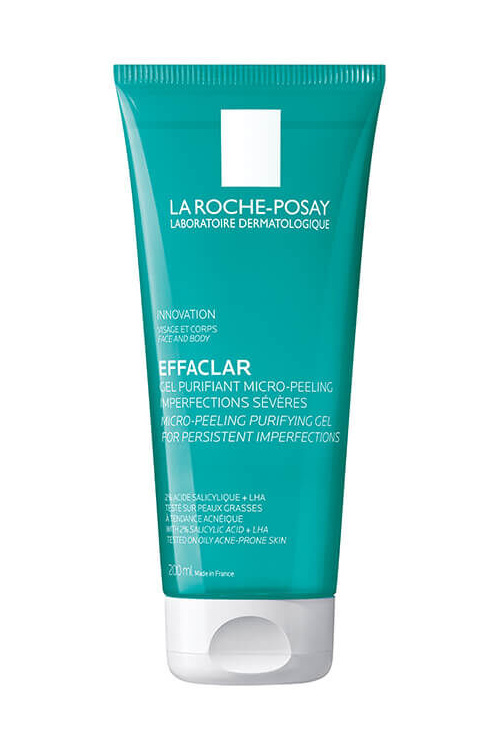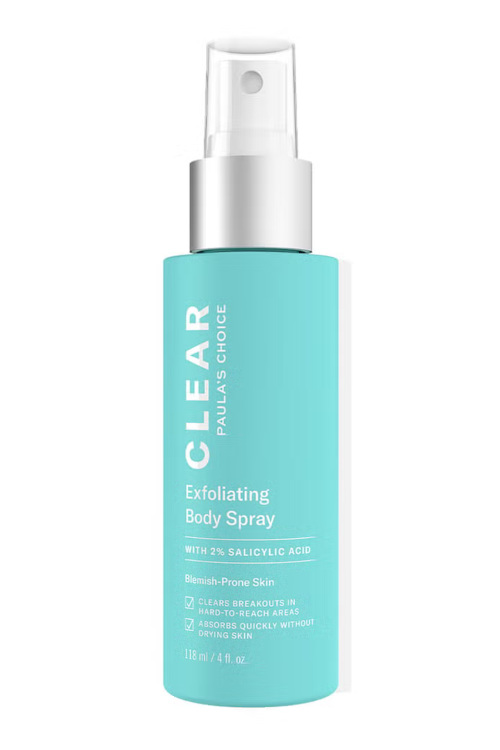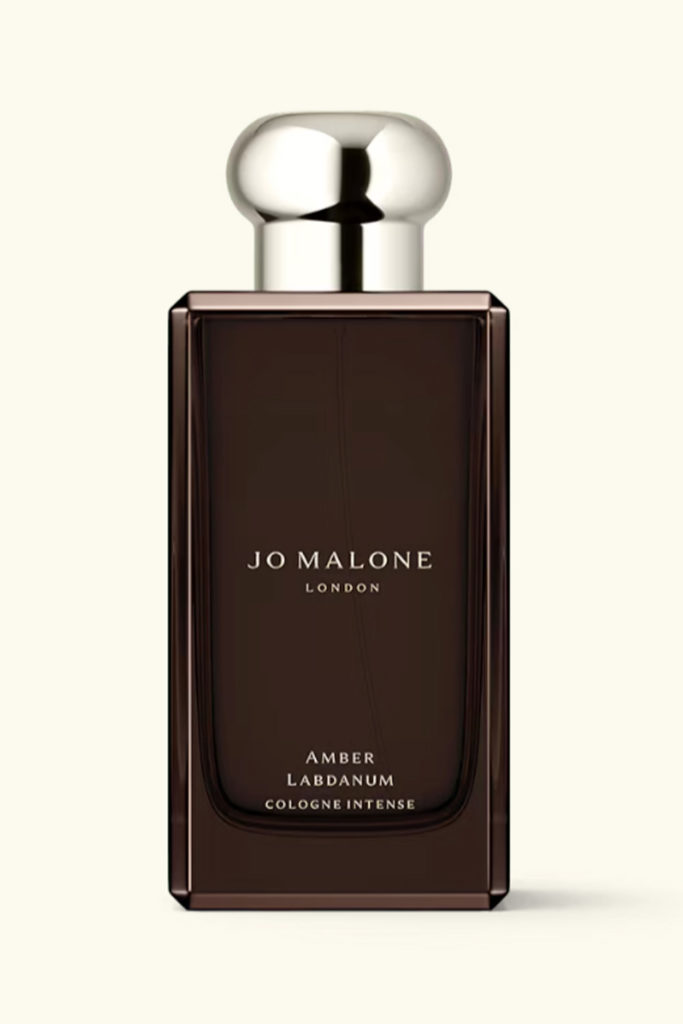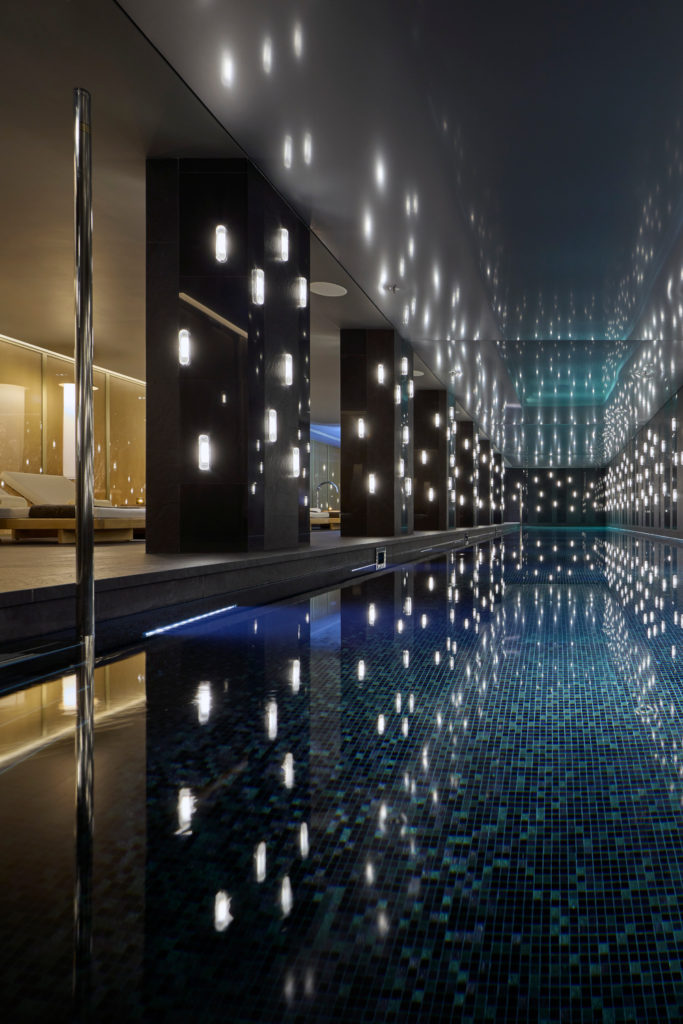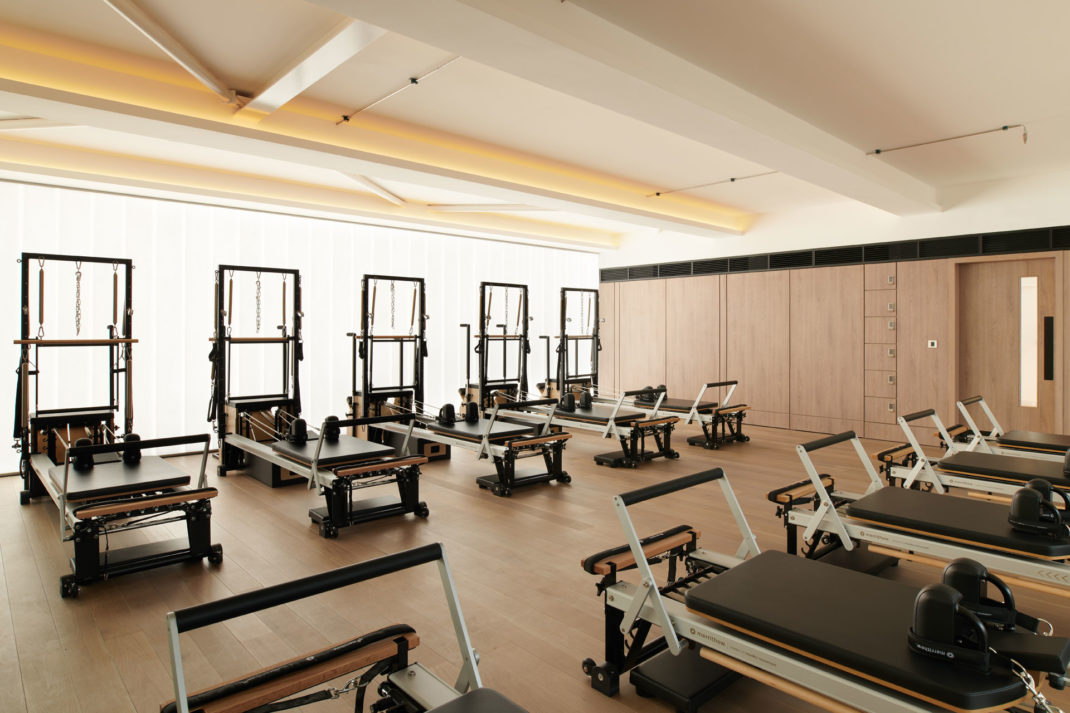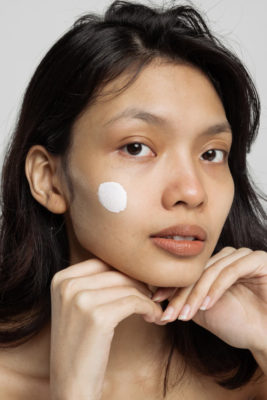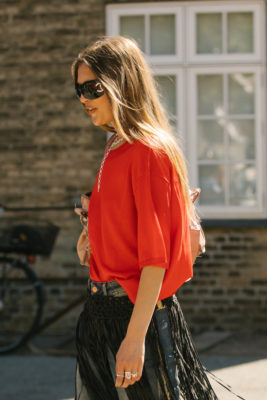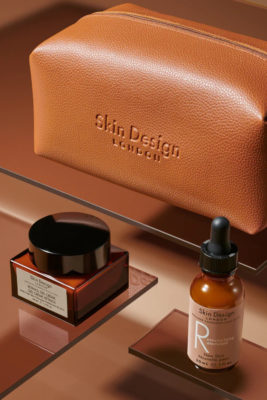
Tired Of Bacne? Here’s How To Get The Perfect Summer-Smooth Back
By
10 months ago
If bacne is playing havoc with your skin this season, then this is the guide for you
While acne gets plenty of screentime in skincare spaces, the same can’t always be said for its bodily cousin, back acne – or bacne, for short. And with summer just around the corner – aka, the season of tank tops, bikinis and shirtless beach days – the heat is on to clear away any remaining breakouts (as well as prevent any new ones from cropping up). Here’s how to clear bacne, according to skincare experts.
What Is Bacne?
Noticed flashes of pimples popping up on your back? Or maybe you have one stubborn spot that you can’t seem to shift. This, dear reader, is bacne. ‘Bacne is the informal term for acne that appears on your back – but it can also include breakouts on the shoulders, upper arms and chest,’ explains Dr Jessica Halliley, an aesthetic doctor and skincare expert with a special interest in acne management. ‘Just like facial acne, it’s caused by blocked pores, excess oil production and bacteria on the skin.’
‘It can present as blackheads, whiteheads, pustules or deeper cystic lesions,’ adds Parneet Gill, a plastic surgeon at sk:n clinics and skin cancer specialist. ‘The skin on the back is thicker and has more sebaceous (oil) glands, making it more prone to clogged pores and inflammation.’
@drdrayzday Back acne explained. Dermatologist explains back acne treatments and skincare for back acne. #backacne #backacbebodywash #acnetreatment #dermatologist #creatorsearchinsights #greenscreen @PanOxyl @Neutrogena ♬ original sound – Dr Dray | Dermatologist
What Causes It?
A number of things can contribute to spikes in bacne, our experts tell us. The most significant though, Dr Halliley tells us, is ‘an increase in sebum production in the hair follicles. Back skin tends to have larger sebaceous glands, which means more oil and a higher likelihood of congestion. There is also an overgrowth of a specific bacteria on the skin, known as Propionibacterium, which can contribute to the issue.’
‘Common contributing factors include sweating, poor hygiene after workouts, hormonal changes and use of comedogenic body products,’ adds Parneet. ‘Friction from backpacks or sports equipment can also aggravate the condition.’
She also notes that, just like with the skin on your face, hormones can sometimes dictate the extent of a bacne breakout. ‘Hormones, particularly androgens, stimulate sebaceous glands to produce more oil,’ the plastic skin specialist. ‘This increased oil can clog pores and feed cutibacterium acnes, the bacteria linked to acne. Hormonal changes during puberty, menstruation, pregnancy or due to certain medications can all worsen bacne.’
Emma Coleman, an aesthetic and dermatology nurse practitioner, also tell us that seasonal changes can have an impact. ‘Trials have shown that changes in weather and climate can affect bacne,’ she confirms. ‘It’s also thought that temperature and humidity have a contributing role in the development of acne.’
She notes that the types of clothing you wear in hot weather can play a part, as friction from certain material or tight-fitting items can cause flare-ups. ‘A lot of my clients tell me that their skin gets so much better when they go on holiday to a hot humid climate and they’re in and out of the sea, but the minute they’re back in the UK – when they’re back in regular clothes – it gets worse again,’ she adds. ‘While some patients find that their acne is actually worse and more aggravated in the summer months. This could be due to clothing, for example, if people are wearing man-made fibres rather than cotton fabrics. This will cause sweating on the back, which could potentially worsen bacne.’
‘Many people notice a flare-up in spring and summer when sweat, heat and SPF use all increase,’ adds Dr Halliley. ‘Sweat, SPF and tight-fitting summer clothing can create a “perfect storm” for breakouts. If sweat isn’t washed off quickly, it can mix with oil and bacteria, clogging pores. Some sunscreens can also be comedogenic if you’re not choosing the right formula.’
@dermatologysurgeon If you struggle with bacne or body acne, this one’s for you. @Selflove_aida thank you for sharing your skin and helping so many others #bacne #acnetreatment #fyp #greenscreenvideo ♬ original sound – Dr. Neera, Skin Surgeon
Who Is More Prone To Getting It?
Anyone can experience bacne at any point in their life, but some might struggle with the condition more than others. ‘While it’s more common in teens and young adults due to the hormonal changes experienced with puberty, adult acne on the body is increasingly seen in clinic – particularly among women in their 30s and 40s who are again navigating hormonal fluctuations,’ says Dr Halliley.
‘It can affect adults too,’ confirms Parneet. ‘Especially those experiencing hormonal fluctuations or those with oily or acne-prone skin types.’
How Long Does A Bacne Breakout Last For?
‘Milder bacne may resolve in a week or two with good skincare, while more severe or cystic bacne can persist for several weeks or longer,’ says Parneet. ‘Without intervention, it may become chronic and lead to scarring.’
Is It Bad To Pop Or Squeeze Spots On Your Back?
Expert advice says that you should avoid popping spots on your own. In most cases, it’s better left to the professionals. ‘Picking or popping acne lesions can push bacteria deeper into the skin, worsening inflammation and increasing the risk of scarring or secondary infection,’ warns Parneet. ‘It’s best to treat breakouts gently and professionally.’
‘It’s much better to see someone and have some proper treatment that will help clear everything out, as well as heal what’s there to prevent new breakouts,’ adds Emma.
How To Prevent Bacne
Worried about potential breakouts? Not for long. Our experts have shared their top tips and tricks for preventing bacne:
- Shower as soon as possible after sweating or exercising
- Wear loose, breathable clothing made from cotton, rather than manmade fibres
- Avoid heavy or fragranced hair products that run onto your back in the shower
- Use body wash in the shower after washing out hair conditioner
- Exfoliate once or twice a week with a gentle chemical exfoliant like salicylic acid
- Use a body wash that has salicylic and/or glycolic acid in it
- Avoid occlusive body products (look for ‘non-comedogenic’ labels), especially SPF
- Wash bedding and workout gear regularly
- Start taking a probiotic (gut bacteria reflects what’s going on on the surface of skin)
@skincarebysaree Back Acne Tips 🙏🏾✨ #acneskin #acnefighter #acneproneskin #bacane #backacne #acneskincare #skincare #skincareguide #bootsuk ♬ original sound – Skincare By Sare
How To Clear Bacne
‘Look for targeted body washes containing salicylic acid or benzoyl peroxide,’ recommends Dr Halliley. ‘If you can’t reach easily, use a long-handled cleansing brush or spray-on product. I also recommend switching to lightweight, non-comedogenic SPF when the weather warms up.’
‘Consistent use of over-the-counter topical treatments with salicylic acid or benzoyl peroxide can help reduce breakouts,’ reiterates Parneet. ‘For persistent cases, dermatologists may prescribe topical retinoids, oral antibiotics or hormone-based treatments. In-clinic treatments such as chemical peels, laser therapy or microneedling can also provide deeper results.’
The full list of skincare ingredients you can incorporate into your routine to help with bacne, as recommended by our experts, includes:
- Salicylic acid (BHA): Exfoliates inside pores to prevent blockages.
- Benzoyl peroxide: Kills acne-causing bacteria.
- Niacinamide: Reduces inflammation and oil production.
- Retinoids (adapalene): Improve skin turnover.
- Alpha hydroxy acids (like glycolic acid): Gently exfoliate surface skin.
As for the products you can enlist in your arsenal, try these for size:
How To Make Bacne Scars Fade Faster
‘Patience and consistence is key,’ says Dr Halliley. ‘Use SPF daily to prevent any post inflammatory pigmentation from darkening, and incorporate ingredients like azelaic acid and retinoids to help fade marks over time.’
‘For existing scars, topical retinoids or vitamin C can also help to promote skin renewal,’ adds Parneet.
And if at-home options aren’t enough, there are also plenty of in-clinic treatments that can help speed things along. ‘If you’ve had treatment, your back is clear of acne and you no longer have breakouts but scarring still persists, then it might be time to consult a professional,’ says Emma. ‘Treatments like laser rejuvenation or microneedling an Morpheus 8 can help with scarring.’






